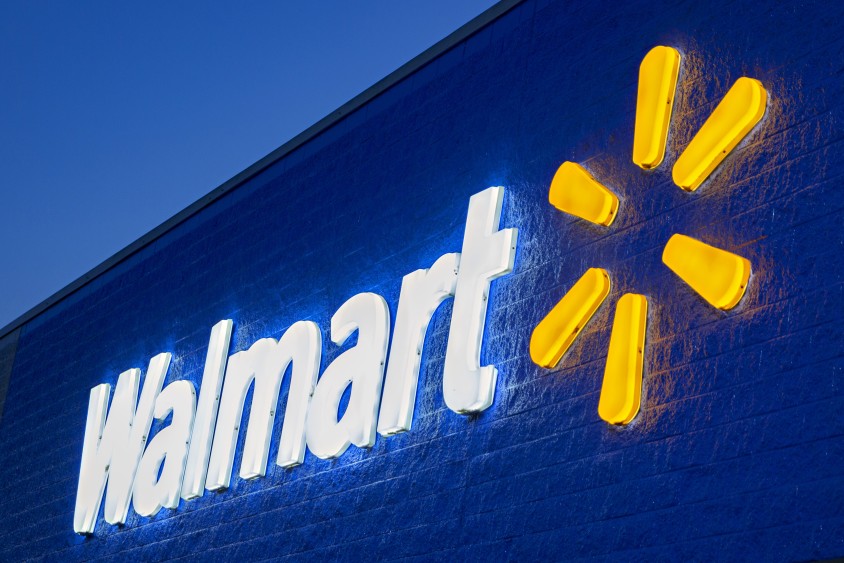WALMART SUPPLY CHAIN PLAN NOW TARGETS EMISSIONS CUTS AS PART OF 1.5 DEGREE PATHWAY

The world’s biggest grocery retailer, Walmart, has moved to the next phase in its path to cut one billion metric tons (a gigaton) of greenhouse gas (GHG) emissions from its global supply chain by 2030.
The company, with revenue of $559 billion in fiscal 2021, is stepping up its sustainable supply chain finance program (SSCF) that ensures the reductions. And – for the first time – it is also using science-based targets to stick to a 1.5 degree Celsius pathway.
Working with global bank HSBC and CDP, the global non-profit that runs the world’s environmental disclosure system for companies, cities, states and regions, the programme is designed to help Walmart’s private brand suppliers by introducing enhanced standards, tools and capacity-building. The retailer says it can help them to upskill and align their operations with sustainability objectives, including better farming practices, such as organic production, reduced use of fertilizers and better ecosystem conversion.
HSBC has partnered with Walmart on its SSCF program since 2019 by offering suppliers improved financing access and terms if they cut GHG emissions in at least one of six pillars outlined in its Project Gigaton. The six areas are energy, nature, waste, packaging, transportation and product use/design.
In the nature pillar, suppliers could, for example, commit to:
- Optimising fertilizer use in corn production by using optical sensors, and aim for improving nutrient use efficiency of more than 20% across 1,000 acres by 2025.
- Implement animal agriculture best practices to reduce enteric and manure emissions across two million acres by 2030.
- Source 100% certified sustainable palm oil (RSPO Segregated, Identity Preserved, NEXT, or equivalent standards) and/or pulp/paper/timber (FSC, SFI, or PEFC) in its own supply chain by 2025.
The project is meant to encourage all suppliers to pursue emission reduction goals, especially smaller and medium-sized businesses. “With CDP scoring added to the mix, suppliers have one more way to take advantage of improved financing through progress and disclosure,” said Walmart’s senior vice president for sustainability Jane Ewing.
Supply chain accounts for 80% of a company’s carbon footprint
Surath Sengupta, global head of financial institutions, portfolio management and sustainability finance at HSBC, said: “On average, 80% of a company’s carbon footprint resides in its supply chain (so) more needs to be done to help small- and medium-sized suppliers. This program does just that.”
Since 2017, more than 3,100 suppliers have signed on to Project Gigaton and they have reported more than 186 million metric tons of CO2 production averted in 2020. Recent research from HSBC and Boston Consulting Group highlighted that small- and medium-sized businesses don’t have enough in-house climate expertise to make the changes on their own and need funds to drive their climate transformations.
“Raising ambitions to cut emissions is paramount in reaching the Paris Agreement goal. This is only achievable with strong supply chain engagement. We are pleased to deepen our relationship with Walmart and HSBC in providing support to accelerate supply chain action,” said Dexter Galvin, global director of corporates and supply chains at CDP. The organisation was founded in 2000 and now works with more than 590 investors with over $110 trillion in assets.
Setting science-based targets
Eligible suppliers can then approach HSBC for early payment of their invoices by Walmart for example. Suppliers setting the highest ambition would be able to take advantage of receiving lowest pricing on their financing. They can also use the financing proceeds to manage their working capital and sustainability-linked improvements, such as making their operations energy efficient.
Ash Eisa, senior vice president for global sourcing at Walmart said: “We are seeing more suppliers enrolling in Project Gigaton since the launch of the SSCF programme. The incentives from the programme are helping them invest in carbon emissions reduction efforts across their operations. This is why these types of collaborations are critical in ensuring even small- and medium-size businesses can reduce their emissions efficiently.”
Join us at SIAL Paris as exhibitor Join us at SIAL Paris as visitor
